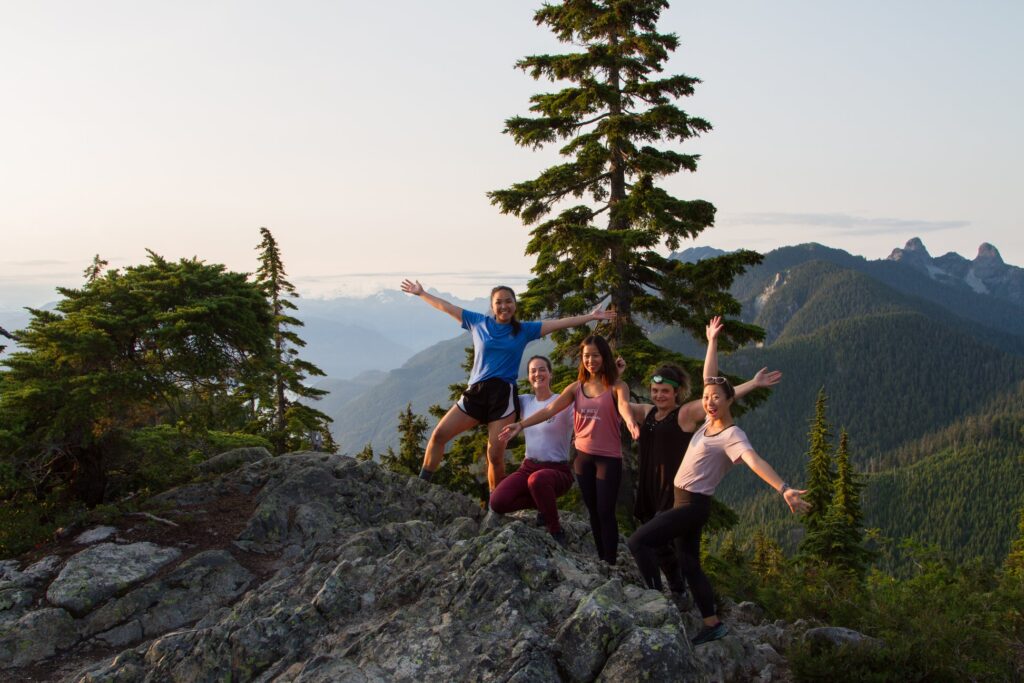For more information, please contact:
Rippon Madtha
Communications Manager
rippon@cpawsbc.org
604-685-7445 (x23)
May 04, 2022
Young British Columbians make bold entrance in parliament, sound alarm for urgent action on climate and nature
Youth are asserting their right to a just and livable future, with some of the first in-person provincial parliament meetings since the beginning of the COVID-19 pandemic
Xʷməθkʷəy̓əm (Musqueam), Sḵwx̱wú7mesh (Squamish) and səlilwətaɬ (Tsleil-Waututh) Territories / Vancouver, BC – On Wednesday, 20 young British Columbians—from Coast Salish (Lower Mainland, Vancouver Island) to Ktunaxa territory (West Kootenays)—are congregating in Victoria’s parliament building to demand action on one of the top issues affecting young Canadians today: climate change, and its threat to nature.
Throughout the day, the youth are meeting with Cabinet ministers, Members of the Legislative Assembly (MLAs), and other government officials to express their concerns on the dire state of global warming and species extinction in BC, and demand swift action to halt the twin crises. Their visit includes meetings with the new Minister of Land, Water, and Resource Stewardship, the Honourable Josie Osborne, the leader of BC’s Green Party, Sonia Furstenau, and several other key elected officials.
With nearly 18% of BC’s population between the ages of 15 and 29, it’s critical that youth—especially those from underrepresented communities, or visible minorities—are included in provincial decision-making. Of these youth, many are also not eligible to vote; yet, their lives will be disproportionately impacted by climate change events relative to older generations. Already, 71% of young Canadians agree that they will suffer from more environmental health problems than their parents.
“As we’re seeing in Victoria today, youth are hungry to have their voices heard. Decisions made by government today will impact their futures for decades to come,” says Brynna Kagawa-Visentin, Youth Engagement Coordinator with CPAWS-BC. “It’s crucial that youth—who belong to BC’s mosaic of underrepresented communities and include visible minorities—are invited into rooms where climate and biodiversity decisions are made. Diversity is the hinge on many doors that could open if youth are actively invited into decision-making spaces.”
Youth advocating for youth—and pushing for environmental protections—carves space out for future conservation leaders to uplift the community’s voices and build careers that support conservation initiatives. With Canada’s commitment to protecting 25% of lands and waters by 2025 and 30% by 2030, and an effective Nature Agreement to be signed between the federal and provincial governments, strong voices for nature are needed more than ever. BC is home to over 1900 species-at-risk, and both Indigenous Knowledge and western science agree that safeguarding more habitat for BC’s biodiverse plant and animal life is key to slowing down climate change.
“My hope is that these meetings set a precedent by showing other civically-interested youth that your voices won’t reverberate in an empty room. Leaders are listening for your fresh ideas and input to help protect BC’s incredible wildlife and landscapes, and build a better future for all,” says Kagawa-Visentin. “We look forward to seeing government officials further engage with young British Columbians on future biodiversity and climate change projects, including those informed by the upcoming Nature Agreement.”
-30-
For more information, contact:
Rippon Madtha
Communications Manager
604-685-7445 (x23)
rippon@cpawsbc.org
Background and Key Facts:
- 70% of the youth lobbying in parliament today identify as part of an underrepresented group or visible minority
- According to Ipsos polling, 4 in 10 young Canadians state that they have been impacted by climate change
- In 2020, the youth unemployment rate was 15.5%—more than the US or UK. Real life experience and training opportunities—like advocating for conservation in government meetings—are key to elevating youth out of unemployment and into green careers that address climate change and biodiversity loss
- In February 2021, the BC and Canadian governments announced the development of a Nature Agreement. Negotiations have been underway since then. The agreement is expected to act as a framework for bi-lateral collaboration, and include recovery measures for at-risk species including Spotted Owl and caribou
Resources
Environment and Climate Change Canada. (2021, February 25). Canada and British Columbia launch development of a new Nature Agreement [Press Release]. Retrieved from: https://www.canada.ca/en/environment-climate-change/news/2021/02/canada-and-british-columbia-launch-development-of-a-new-nature-agreement.html
Ipsos. (2021, October 15). Young Canadians’ Attitudes on Climate Change [Polling]. Retrieved from: https://www.ipsos.com/en-ca/news-polls/canadian-youth-climate-poll
Statistics Canada (2022, April 27). Census Profile, 2021 Census of Population. Retrieved from: https://www12.statcan.gc.ca/census-recensement/2021/dp-pd/prof/details/page.cfm?Lang=E&SearchText=British%20Columbia&DGUIDlist=2021A000259&GENDERlist=1,2,3&STATISTIClist=1&HEADERlist=0
Youth Climate Lab. Youth & Climate Jobs are Critical to COVID-19 Economic Recovery [Brief]. Retrieved from: https://static1.squarespace.com/static/59ec036ef9a61ebf918040ac/t/603e78cb17f1c46b2f12c414/1617222570484/Research+Brief%3A+Youth+%26+Climate+Jobs+Critical+to+COVID-19+Economic+Recovery
